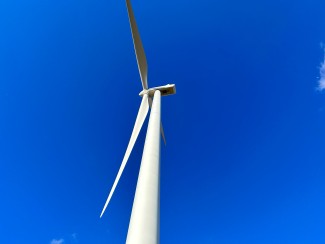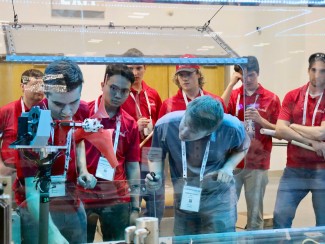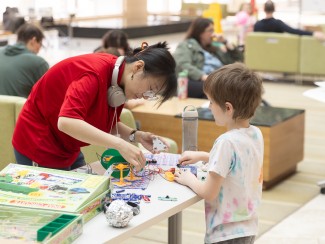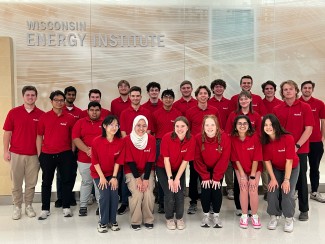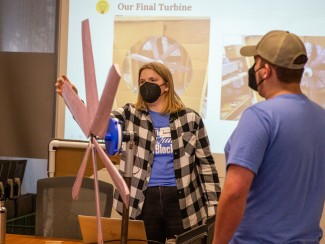
Armed with a passion for the environment and dreams of revolutionizing electricity generation, students from Wisconsin and northern Illinois journeyed to the University of Wisconsin–Madison earlier this month to test their engineering skills in the 2023 KidWind Challenge. Teams of elementary, middle, and high school students tested model wind turbines they designed and built from scratch and demonstrated their knowledge to a panel of judges.
Hosted for the sixth time by the Wisconsin Energy Institute, the Wisconsin KidWind Challenge engages engineering skills through hands-on competitions. Teams tested their wind turbines in a wind tunnel, competing to see whose turbine produced the highest voltage. Outside of their turbine performance, teams gained extra points through presentations in front of a panel of judges and instant challenges testing their teamwork skills.
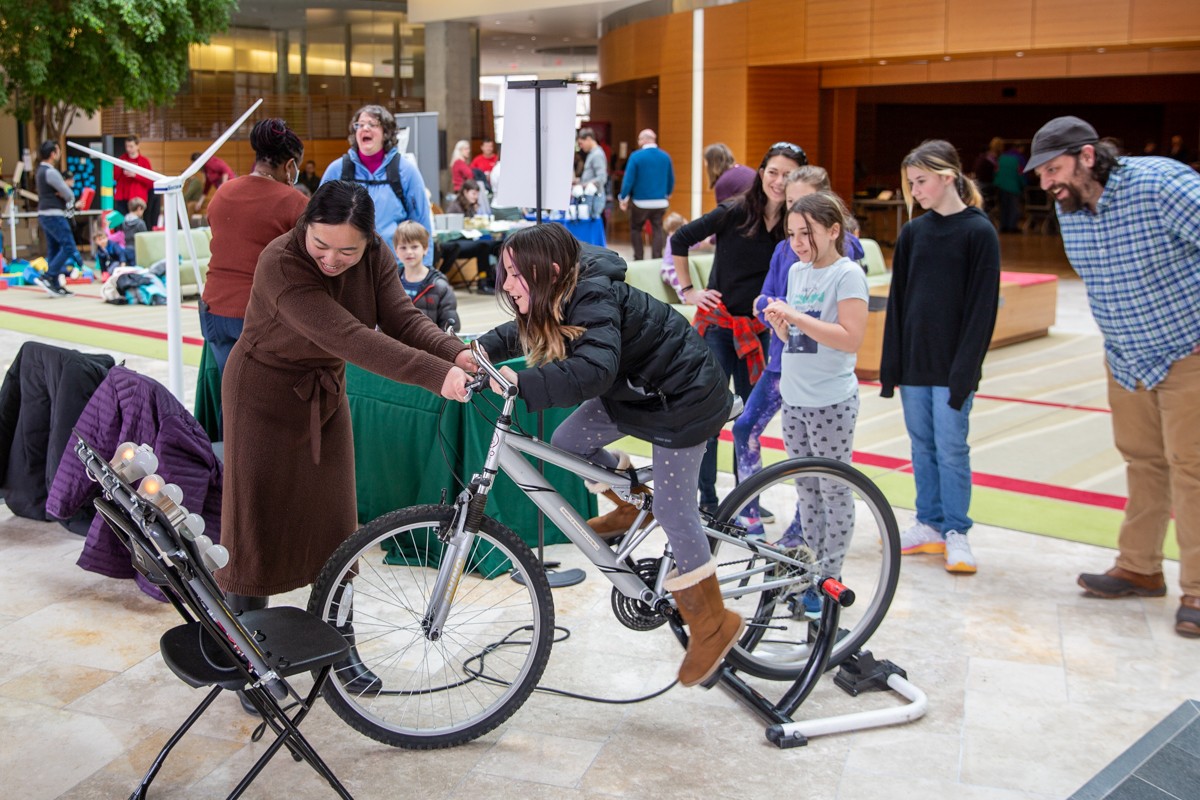
Enthusiastic students huddled around their turbines in the Discovery Building and added final changes before testing, hoping to increase their energy production. Returning teams were eager to get back to the competition and showcase their improvement.
Ninth and tenth graders on Madison East High School’s Gold Team spent the past few months working after school researching and testing designs.
Their coach, math teacher Chelsea Chin, enjoyed how the competition gave her students freedom in design choices and the opportunity to learn through their own trial and error.
“They took apart motors and really looked at how they worked,” she said. “The team’s determination resulted in a lot of science and technology learning this year.”
The Gold Team’s efforts paid off and they produced more volts than at last year's competition.
“We still do have a lot to improve upon,” said Odin Pourchot, a freshman at Madison East High School. “We are already brainstorming ideas to improve our structure and we will come back to KidWind stronger than ever.”
This type of growth is exactly what judges are looking for in the competition.
“I want to hear them say ‘you told us about this last year, so we added this.’ It’s good to see growth,” said Cris Folk, an energy consultant who has been a KidWind judge for the past eight years.
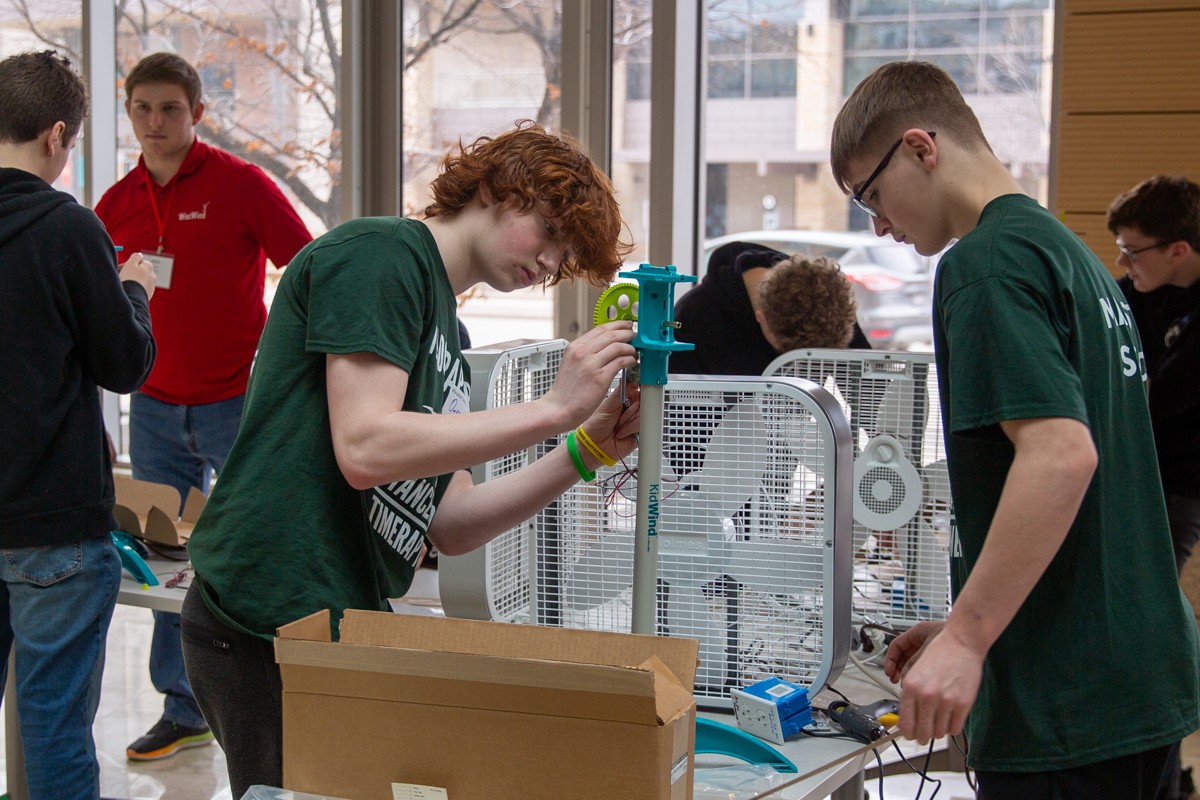
Three teams of fourth graders from Riveredge Outdoor Learning Elementary School in Saukville, Wisconsin competed in the first elementary category at the Wisconsin KidWind Challenge. Allison Servais, Riveredge fourth-grade teacher, used KidWind as a unit in her science class.
“My students are a high-energy, tactile, and mobile group. They learn much better with hands-on activities,” Servais said. “Here, they were involved, engaged, and able to see they are part of something bigger.”
The students quickly grew a passion for the project, learning both about renewable energy and how to work together as a team.
“Some teams were getting frustrated with one thing or another, but they continued to persevere and not give up until they were able to find a level of success that made them proud,” Servais said.
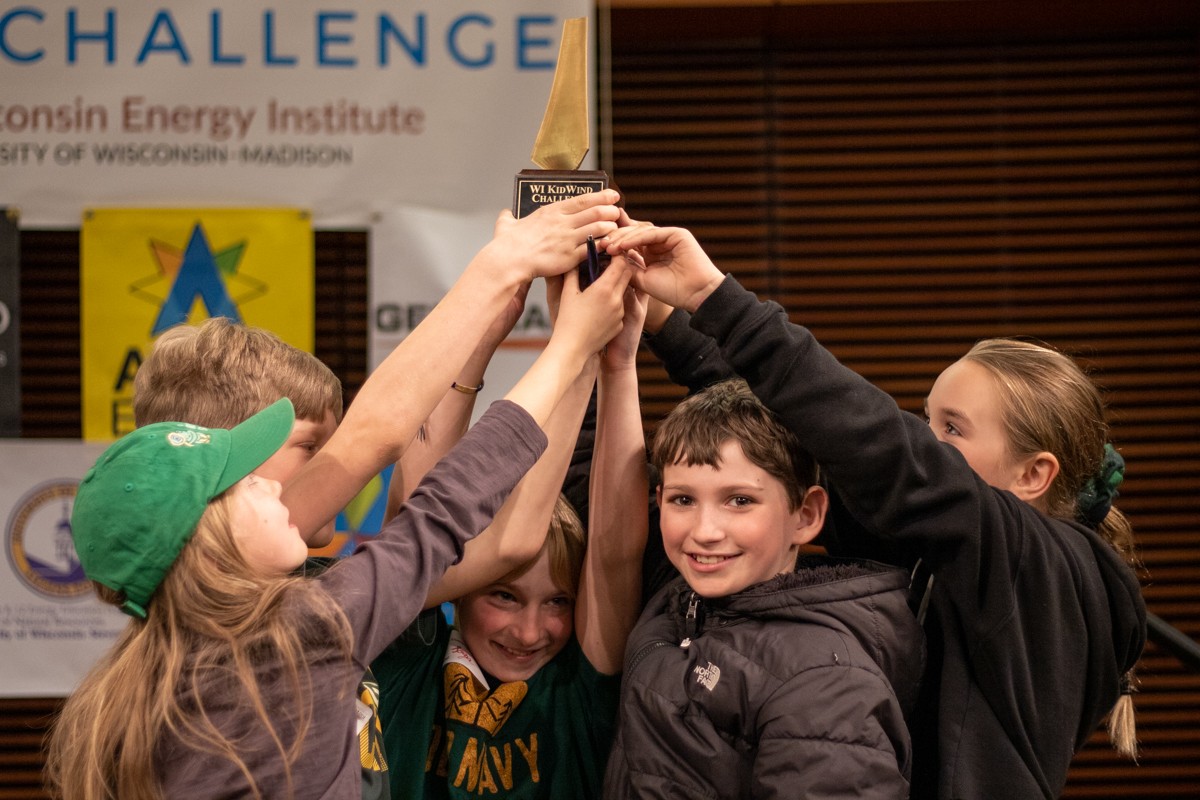
There were additional opportunities for students and their families to learn about clean energy. They used a bicycle to power light bulbs, learned how to make their homes more energy efficient, and made parachutes that they dropped in wind tunnels. Family members and the public experienced the challenges of building model turbines first-hand in their own simplified model turbine station.
Students also heard from wind energy professionals and members of UW–Madison's WiscWind team, who are competing in the U.S. Department of Energy's Collegiate Wind Competition.
Career panelists highlighted the importance of events like these for the growing industry. According to the U.S. Energy Information Administration, the U.S. generated more than three times as much electricity from wind power last year than in 2012, leaving space for innovation and advancements, even for kids.
“We are at the precipice of a massive shift in how we generate electricity. And that is in your hands,” said panelist Chris Kunkle, director of state affairs at Apex Clean Energy. “There are so many different pathways into this industry. This is the place to be. By just being in this room, you have such an advantage.”
Three high school teams, two middle school teams, and one elementary school team qualified to compete in the 2023 National KidWind Challenge in Boulder, Colorado this May.
Even for the groups that didn’t make Nationals, students' learning and pride in their work stood out during the competition. Servais was impacted by her students’ enthusiasm and determination in every aspect of the day.
“The opportunity for them to do this at such a young age, and not only find success but see how they are working towards making a difference was such an honor,” she said. “They can see they have just as much power to change things as the older kids.”

